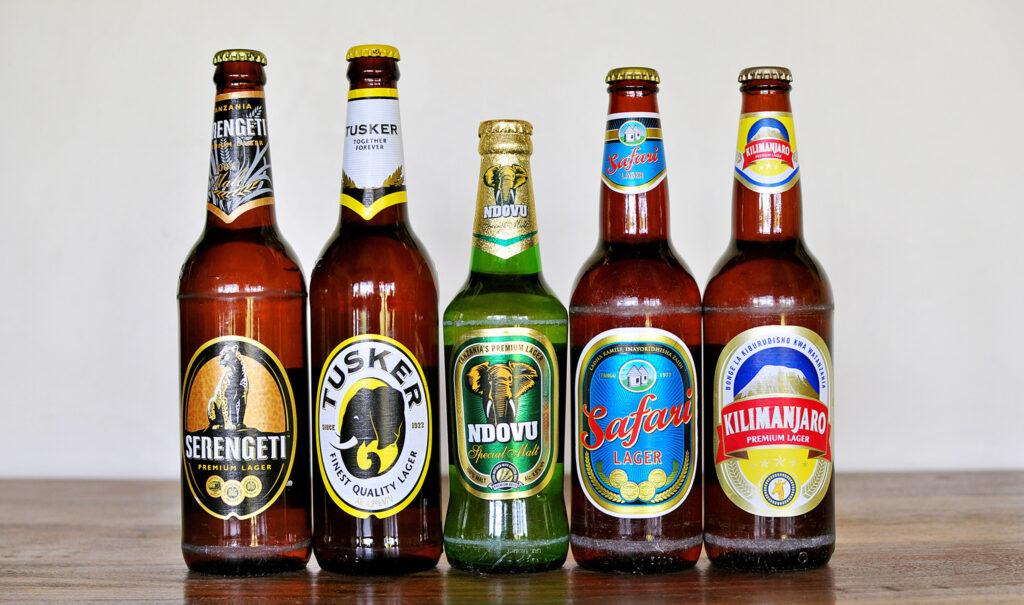Have you ever wondered how much a bottle of beer costs in Tanzania? This East African nation offers a vibrant culture and picturesque landscapes, but its economy and pricing are unique. Alcohol pricing here can certainly turn some heads.
Alcohol in Tanzania can vary significantly in cost, influenced by factors such as local production and importation taxes. Local beers are quite affordable, often costing less than $1 per bottle. However, imported wines and spirits can be pricier, sometimes exceeding the cost of similar items in Western countries.

Understanding the Pricing of Alcohol in Tanzania
Alcohol pricing in Tanzania is influenced by several factors that combine to create a diverse market. Taxes and import duties make imported beverages expensive. Local produce, however, is relatively cheaper. Traditional brews like Konyagi are popular because they’re more affordable. This price difference affects consumer choices significantly.
Local manufacturing reduces costs, making domestic beers and spirits budget-friendly. Imported wines and whiskeys face high duties, increasing their prices. You might pay $1 for a local beer but up to $20 for imported wine. The government’s tax policies play a big role. Their aim is to boost local industry and manage consumption.
Packaging and brand reputation also influence alcohol prices. Premium brands often have higher costs due to their perceived value. Local brands, while cheaper, might not offer the same prestige. Still, they cater well to the local market. This blend of options ensures that there’s something for everyone.
Tourists visiting Tanzania, like those on a Tanzania safari, often find alcohol prices reasonable. They appreciate the quality of local products. Budget-conscious travelers prefer local brands. For high-end experiences, pricier imports are available. Thus, alcohol pricing in Tanzania balances both local needs and tourist expectations.
Factors Influencing Alcohol Prices
Several elements contribute to the cost of alcohol in Tanzania. One primary factor is government taxation. High taxes and import duties raise the price of imported alcoholic beverages. Consequently, locally produced alcohol is often less expensive. Import regulations also play a role, as they control what comes into the country.
Production costs impact alcohol prices as well. Locally produced drinks have lower manufacturing expenses. Ingredients and labor in Tanzania are less costly, which helps keep prices down. However, imported brands include shipping and handling costs, making them more expensive. Transportation difficulties, like poor road conditions, can further affect costs.
Market demand and consumer preferences also dictate alcohol prices. High demand for certain types of alcohol can drive prices up. Popular imported brands might charge more due to their global reputation. At the same time, local brews might be cheaper but equally satisfying. The balance between demand and supply is crucial.
Seasonal variations and special events can impact alcohol prices. During peak tourist seasons, prices tend to rise. Events like festivals can also lead to price hikes. This is because of increased consumption and greater demand. Understanding these factors helps consumers make more informed purchasing decisions.
Comparison of Local and Imported Alcohol Costs
Alcohol prices in Tanzania show a significant difference between local and imported varieties. Local beverages, such as Tanzanian beers and spirits, are generally more affordable. This is because they do not incur high import taxes. The production costs for local alcohol are also lower. Hence, consumers find local options budget-friendly.
Imported alcohol, on the other hand, is pricier. Shipping costs, import duties, and taxes increase their price. Popular imported brands can cost much more than local alternatives. For example, a bottle of imported whiskey might cost three times more than a local spirit. These added costs make imported brands a luxury.
Here is a table summarizing the cost differences:
| Alcohol Type | Local Price (USD) | Imported Price (USD) |
|---|---|---|
| Beer | $1 | $3 |
| Whiskey | $10 | $30 |
| Wine | $5 | $20 |
While both local and imported alcohols have their appeal, consumer choices often depend on budget. Locals often prefer local brands for their affordability and taste. Tourists might splurge on imported options for a familiar taste. This dynamic ensures there is always a market for both types.
Impact of Alcohol Pricing on Tourism and Local Economy
Alcohol pricing in Tanzania significantly affects the tourism sector. Tourists often have different expectations regarding the cost of alcohol. Reasonable prices for local drinks can enhance their travel experience. This encourages more spending in restaurants and bars. Tourism revenue then contributes to the local economy.
High prices for imported alcohol can be a deterrent for some tourists. Travelers on a budget might avoid expensive imported drinks. However, those who seek premium experiences may still opt for pricier options. This differentiation in prices caters to a broad range of visitors. It ensures both budget and luxury travelers find what they need.
Local businesses benefit from the sale of affordable alcohol. Bars and restaurants prefer stocking local brands due to lower costs. This boosts the sales of local breweries and distilleries. As local businesses thrive, they offer more job opportunities. This creates a positive cycle of growth within the local economy.
Special events and festivals in Tanzania also highlight the impact of alcohol pricing. During these occasions, alcohol consumption usually spikes. This temporary increase in demand can lead to higher prices. However, these events also attract more tourists. The bump in tourism can offset any negative effects of price increases.
The availability of affordable local alcohol can foster longer stays by tourists. When visitors find local drinks that are both good and affordable, they tend to extend their visit. This means more money spent on other services like accommodation, tours, and Kilimanjaro climbing experiences. The overall benefit to the local economy is extensive.
Lastly, alcohol pricing ensures a balance in consumption patterns. High prices can deter excessive drinking, promoting responsible consumption. At the same time, affordable prices encourage enjoyment without overindulgence. This balanced approach aids both health and economic interests in Tanzania.
Key Takeaways
- Local beers in Tanzania typically cost around $1.
- Imported wines and spirits are often three times more expensive.
- Taxes and import duties significantly impact alcohol prices.
- Locally produced options are generally more budget-friendly.
- The method of production also affects overall pricing.

